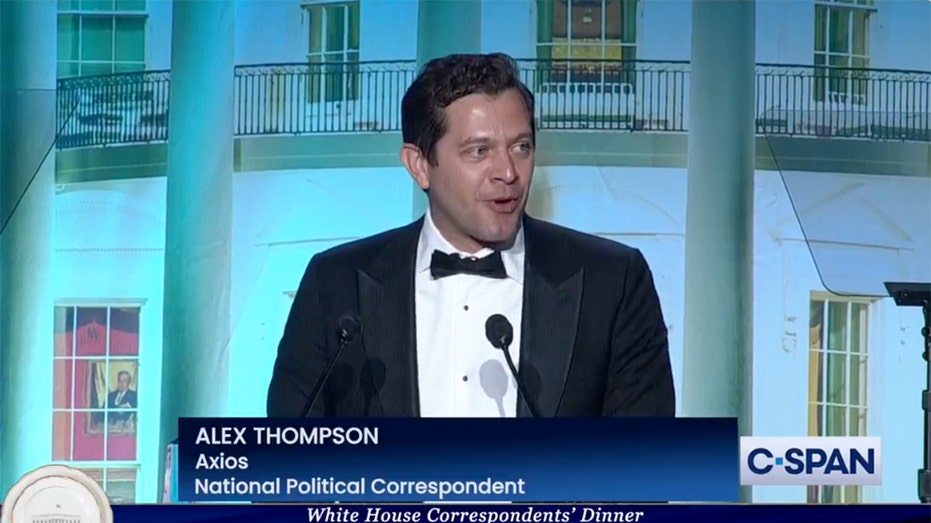
Axios Reporter Calls Out Media at White House Event
During the recent White House Correspondents’ Dinner, Axios reporter Alex Thompson delivered a sharp critique aimed at the media for its lack of coverage regarding President Biden’s declining health. The annual dinner, typically a night of humor and celebration, took a serious turn as Thompson highlighted what he sees as a growing problem in political journalism.
Biden’s Health: A Growing Concern
In his remarks, Thompson emphasized that while the White House Correspondents’ Dinner is an opportunity to celebrate journalism, it also serves as a platform to address critical issues—in this case, the health of President Biden. As the president approaches his re-election campaign, questions about his health have become increasingly relevant yet are often overlooked in mainstream media reports.
Thompson argued that responsible coverage should not shy away from discussing the implications of Biden’s age and health as they relate to his ability to serve effectively as president. Citing recent public appearances and moments of confusion, the Axios reporter insisted that the media has a duty to inform the public about such significant matters.
Media’s Role in Political Reporting
The media plays a crucial role in shaping public perception, especially concerning critical issues like a leader’s health. According to Thompson, failing to adequately cover these concerns not only misinforms the public but also poses a risk to democratic accountability. As the 2024 elections loom, the necessity for thorough journalism becomes even more pronounced.
- Biden’s mental and physical health has been a subject of speculation.
- High-profile public figures have observed the president’s occasional gaffes.
- Deliberate avoidance of health discussions in the media could lead to voter misconceptions.
Reactions from Washington
Thompson’s comments resonated with many in attendance. The White House Correspondents’ Dinner, historically characterized by light-hearted banter, became a stage for a more serious discussion about transparency in political reporting. Journalists and political analysts echoed Thompson’s sentiments, stressing the need for honest reporting on the president’s health as it directly impacts governance.
Importantly, this call for more transparency is not just isolated to Biden. As political figures age or face health issues, it raises questions about how media outlets approach these topics. For example, throughout history, other leaders have faced similar scrutiny, and this pattern appears to be repeating.
How the Media’s Silence Affects Public Perception
The implications of ignoring Biden’s health issues could be far-reaching. Political scientist Dr. Emily Torres notes that clear communication from media outlets fosters an informed electorate. As she points out, “If the voters are not informed about the candidates’ capabilities, then they cannot make sound decisions at the polls.”
Furthermore, a report published by Pew Research reveals that 65% of Americans believe the media should cover candidates’ health more thoroughly. This statistic underscores the importance of the issues raised by Thompson during his speech. It also reflects a growing public demand for accountability and transparency in political discourse.
The Path Forward for Political Journalism
In the wake of Thompson’s critique, the media landscape may need to reassess its priorities and coverage strategies. As more citizens express a desire for transparency, it may become essential for journalists to adopt a more robust reporting approach, particularly concerning declarations of health and well-being of leaders.
Furthermore, embracing health discussions can transform them from mere gossip into necessary elements of political accountability. Investigative reporting doesn’t have to sacrifice thoroughness for sensationalism; instead, it can lead to enriching public dialogue.
The Need for Voter Awareness
Ultimately, the responsibility for awareness does not lie solely with the media but also with the voters. Engaged electorate must actively seek information, challenge narratives, and demand accountability. As the elections approach, informed voting becomes crucial, further emphasizing the importance of health coverage in political reporting.
Reference: [Source: Fox News]

